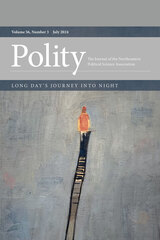49 start with A start with A
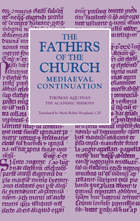

The master of Old Comedy.
Aristophanes of Athens, one of the world’s greatest comic dramatists, has been admired since antiquity for his iridescent wit and beguiling fantasy, exuberant language, and brilliant satire of the social, intellectual, and political life of Athens at its height. The Loeb Classical Library edition of his plays is in four volumes.
The Introduction to the edition is in Volume I. Also in the first volume is Acharnians, in which a small landowner, tired of the Peloponnesian War, magically arranges a personal peace treaty; and Knights, perhaps the most biting satire of a political figure (Cleon) ever written.
Three plays are in Volume II. Socrates’ “Thinkery” is at the center of Clouds, which spoofs untraditional techniques for educating young men. Wasps satirizes Athenian enthusiasm for jury service. In Peace, a rollicking attack on war-makers, the hero travels to heaven on a dung beetle to discuss the issues with Zeus.
The enterprising protagonists of Birds create a utopian counter-Athens ruled by birds. Also in Volume III is Lysistrata, in which our first comic heroine organizes a conjugal strike of young wives until their husbands end the war between Athens and Sparta. Women again take center stage in Women at the Thesmophoria, this time to punish Euripides for portraying them as wicked.
Frogs, in Volume IV, features a contest between the traditional Aeschylus and the modern Euripides, yielding both sparkling comedy and insight on ancient literary taste. In Assemblywomen Athenian women plot to save Athens from male misgovernance—with raucously comical results. Here too is Wealth, whose gentle humor and straightforward morality made it the most popular of Aristophanes’ plays from classical times to the Renaissance.
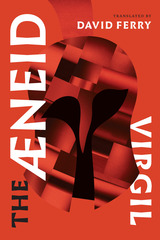
The paperback and e-book editions include a new introduction by Richard F. Thomas, along with a new glossary of names that makes the book even more accessible for students and for general readers coming to the Aeneid for the first time who may need help acclimating to Virgil’s world.
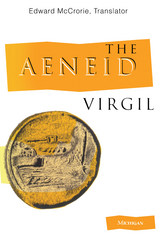
In this new translation Edward McCrorie has performed the difficult task of rendering Virgil's compact, dense Latin into fine, readable, modern English verse. The sometimes complex text is made clear and comprehensible even for first-time readers, and a glossary of names helps identify characters and place-names in the poem. The translation is well suited for students at all levels, and readers already familiar with Virgil will find many fresh images and ideas.
"A brilliant effort."--Robert Bly
"I admire the ambition of the project, and the generosity of many of the lines."--Robert Fagles
Edward McCrorie is Professor of English, Providence College. His poetry and translations of Latin verse have been widely published.
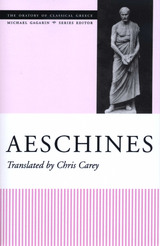
This is the third volume in the Oratory of Classical Greece series. Published over several years, the series presents all of the surviving speeches from the late fifth and fourth centuries B.C. in new translations prepared by classical scholars who are at the forefront of the discipline. These translations are especially designed for the needs and interests of today's undergraduates, Greekless scholars in other disciplines, and the general public.
Classical oratory is an invaluable resource for the study of ancient Greek life and culture. The speeches offer evidence on Greek moral views, social and economic conditions, political and social ideology, and other aspects of Athenian culture that have been largely ignored: women and family life, slavery, and religion, to name just a few.
This volume contains the three surviving speeches of Aeschines (390-? B.C.). His speeches all revolve around political developments in Athens during the second half of the fourth century B.C. and reflect the internal political rivalries in an Athens overshadowed by the growing power of Macedonia in the north. The first speech was delivered when Aeschines successfully prosecuted Timarchus, a political opponent, for having allegedly prostituted himself as a young man. The other two speeches were delivered in the context of Aeschines' long-running political feud with Demosthenes. As a group, the speeches provide important information on Athenian law and politics, Demosthenes and his career, sexuality and social history, and the historical rivalry between Athens and Macedonia.
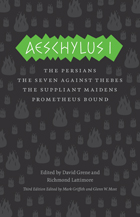
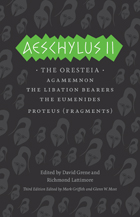
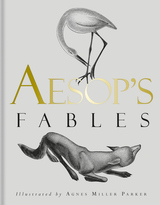
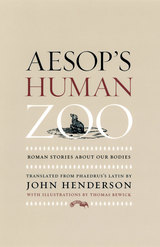
Providing unusual insights into the heart of Roman culture, these clever poems open up odd avenues of ancient lore and life as they explore social types and physical aspects of the body, regularly mocking the limitations of human nature and offering vulgar or promiscuous interpretations of the stuff of social life.
Featuring folksy proverbs and satirical anecdotes, filled with saucy naughtiness and awful puns, Aesop's Human Zoo will amuse you with its eccentricities and hit home with its shrewdly candid and red raw messages. The entertainment offered in this volume of impeccably accurate translations is truly a novelty—a good-hearted and knowing laugh courtesy of classical poetry. Beginning to advanced classicists and Latin scholars will appreciate the original Latin text provided in this bilingual edition. The splash of classic Thomas Bewick wood engravings to accompany the fables renders the collection complete.

Callimachus of Cyrene, born ca. 310 BCE, after studying philosophy at Athens, became a teacher of grammar and poetry at Alexandria. Ptolemy II Philadelphus of Egypt (reigned 285–247) made him when still young a librarian in the new library at Alexandria; he prepared a great catalogue of its books.
Callimachus was author of much poetry and many works in prose, but not much survives. His hymns and epigrams are given with works by Aratus and Lycophron in another volume (no. 129) of the Loeb Classical Library. In the present volume are included fragments of the Aetia (Causes), aetiological legends concerning Greek history and customs; fragments of a book of Iambi; 147 fragments of the epic poem Hecale, which described Theseus’s victory over the bull which infested Marathon; and other fragments.
We have no explicit information about the poet Musaeus, author of the short epic poem on Hero and Leander, except that he is given in some manuscripts the title Grammatikos, a teacher learned in the rhetoric, poetry and philosophy of his time. He was obviously a follower of the Egyptian poet Nonnus of Panopolis, of the fifth century AD, and his poem seems also to presuppose the Paraphrase of the Psalms of Pseudo-Apollinarius which can be dated to the period 460–470.
Musaeus takes up a subject whose first detailed treatment is preserved in Ovid’s Heroides (Epistles 18 and 19), but he presents it in a quite different manner. Among the literary antecedents to which this learned grammatikos expressly alludes, the most prominent are Books 5 and 6 of the Odyssey and Plato’s Phaedrus. He draws too on the Hymns of Proclus and the Metaphrasis of the Gospel of St. John by Nonnus. He was most probably a Christian Neoplatonist writing a Christian allegory.

The premier scholar-poet of the Hellenistic age.
Callimachus (ca. 303–ca. 235 BC), a proud and well-born native of Cyrene in Libya, came as a young man to the court of the Ptolemies at Alexandria, where he composed poetry for the royal family; helped establish the Library and Museum as a world center of literature, science, and scholarship; and wrote an estimated 800 volumes of poetry and prose on an astounding variety of subjects, including the Pinakes, a descriptive bibliography of the Library’s holdings in 120 volumes. Callimachus’ vast learning richly informs his poetry, which ranges broadly and reworks the language and generic properties of his predecessors in inventive, refined, and expressive ways. The “Callimachean” style, combining learning, elegance, and innovation and prizing brevity, clarity, lightness, and charm, served as an important model for later poets, not least at Rome for Catullus, Virgil, Horace, Ovid, and the elegists, among others.
This edition, which replaces the earlier Loeb editions by A. W. Mair (1921) and C. A. Trypanis (1954, 1958), presents all that currently survives of and about Callimachus and his works, including the ancient commentaries (Diegeseis) and scholia. Volume I contains Aetia, Iambi, and lyric poems; Volume II Hecale, Hymns, and Epigrams; and Volume III miscellaneous epics and elegies, other fragments, and testimonia, together with concordances and a general index. The Greek text is based mainly on Pfeiffer’s but enriched by subsequently published papyri and the judgment of later editors, and its notes and annotation are fully informed by current scholarship.
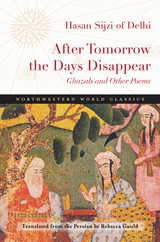
Hasan Sijzi, also known as Amir Hasan Sijzi Dehlavi, is considered the originator of the Indo-Persian ghazal, a poetic form that endures to this day—from the legacy of Hasan’s poetic descendent, Hafez, to contemporary Anglophone poets such as John Hollander, Maxine Kumin, Agha Shahid Ali, and W. S. Merwin.
As with other Persian poets, Hasan worked within a highly regulated set of poetic conventions that brought into relief the interpenetration of apparent opposites—metaphysical and material, mysterious and quotidian, death and desire, sacred and profane, fleeting time and eternity. Within these strictures, he crafted a poetics that blended Sufi Islam with non-Muslim Indic traditions. Of the Persian poets practiced the ghazal, Hafez and Rumi are best known to Western readers, but their verse represents only a small fraction of a rich tradition. This collection reveals the geographical range of the literature while introducing an Indian voice that will find a place on reader’s bookshelves alongside better known Iranian names.
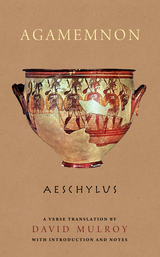
Aeschylus (525/4–456/5 B.C.E.) was the first of the three great tragic dramatists of ancient Greece, a forerunner of Sophocles and Euripides. His early tragedies were largely choral pageants with minimal plots. In Agamemnon, choral songs still predominate, but Aeschylus infuses them with such dramatic feeling that the spectator or reader is constantly spellbound.
Translator David Mulroy brings this ancient tragedy to life for modern readers and audiences. Using end rhyme and strict metrics, he combines the buoyant lyricism of the Greek text with a faithful rendering of its meaning in lucid English.

Ancient Athens’ most successful tragedian.
Sophocles (497/6–406 BC), with Aeschylus and Euripides, was one of the three great tragic poets of Athens, and is considered one of the world's greatest poets. The subjects of his plays were drawn from mythology and legend. Each play contains at least one heroic figure, a character whose strength, courage, or intelligence exceeds the human norm—but who also has more than ordinary pride and self-assurance. These qualities combine to lead to a tragic end.
Hugh Lloyd-Jones gives us, in two volumes, a new translation of the seven surviving plays. Volume I contains Oedipus Tyrannus (which tells the famous Oedipus story), Ajax (a heroic tragedy of wounded self-esteem), and Electra (the story of siblings who seek revenge on their mother and her lover for killing their father). Volume II contains Oedipus at Colonus (the climax of the fallen hero's life), Antigone (a conflict between public authority and an individual woman's conscience), The Women of Trachis (a fatal attempt by Heracles' wife to regain her husband's love), and Philoctetes (Odysseus' intrigue to bring an unwilling hero to the Trojan War).
Of his other plays, only fragments remain; but from these much can be learned about Sophocles' language and dramatic art. The major fragments—ranging in length from two lines to a very substantial portion of the satyr play The Searchers—are collected in Volume III of this edition. In prefatory notes Lloyd-Jones provides frameworks for the fragments of known plays.

In the early 1140s, the Bavarian princess Bertha von Sulzbach arrived in Constantinople to marry the Byzantine emperor Manuel Komnenos. Wanting to learn more about her new homeland, the future empress Eirene commissioned the grammarian Ioannes Tzetzes to compose a version of the Iliad as an introduction to Greek literature and culture. He drafted a lengthy dodecasyllable poem in twenty-four books, reflecting the divisions of the Iliad, that combined summaries of the events of the siege of Troy with allegorical interpretations. To make the Iliad relevant to his Christian audience, Tzetzes reinterpreted the pagan gods from various allegorical perspectives. As historical allegory (or euhemerism), the gods are simply ancient kings erroneously deified by the pagan poet; as astrological allegory, they become planets whose position and movement affect human life; as moral allegory Athena represents wisdom, Aphrodite desire.
As a didactic explanation of pagan ancient Greek culture to Orthodox Christians, the work is deeply rooted in the mid-twelfth-century circumstances of the cosmopolitan Comnenian court. As a critical reworking of the Iliad, it must also be seen as part of the millennia-long and increasingly global tradition of Homeric adaptation.
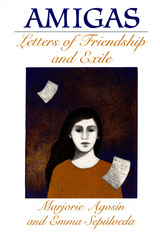
This collection of letters chronicles a remarkable, long-term friendship between two women who, despite differences of religion and ethnicity, have followed remarkably parallel paths from their first adolescent meeting in their native Chile to their current lives in exile as writers, academics, and political activists in the United States. Spanning more than thirty years (1966-2000), Agosín's and Sepúlveda's letters speak eloquently on themes that are at once personal and political—family life and patriarchy, women's roles, the loneliness of being a religious or cultural outsider, political turmoil in Chile, and the experience of exile.
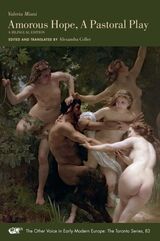
Valeria Miani’s Amorous Hope is a play of remarkable richness, subtlety, and verve. It presents a scathing exposure of society’s double-standards and it champions women’s dramatic agency by centering on the bleak reality they often faced, a reality that attempted to harm and silence its victims. The play’s salient episodes reflect realities modern women still face today.
Miani’s literary achievements attest to her emergence as a cultural protagonist alongside Europe’s most talented women writers, such as Isabella Andreini, and she challenged the premodern notion that a woman’s eloquence is an indication of her sexual promiscuity.
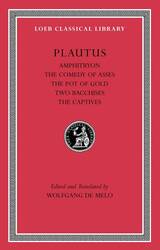
Funny happenings.
The rollicking comedies of Plautus, who brilliantly adapted Greek plays for Roman audiences ca. 205–184 BC, are the earliest Latin works to survive complete and are cornerstones of the European theatrical tradition from Shakespeare and Molière to modern times. This first volume of a new Loeb edition of all twenty-one of Plautus’ extant comedies presents Amphitruo, Asinaria, Aulularia, Bacchides, and Captivi with freshly edited texts, lively modern translations, and ample explanatory notes. Accompanying the plays is a detailed introduction to Plautus’ œuvre as a whole, discussing his techniques of translation and adaptation, his use of Roman humor, stage conventions, language and meter, and his impact on the Greco-Roman comedic theater and beyond.
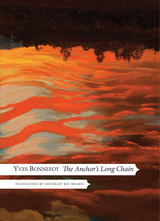
Yves Bonnefoy has wowed the literary world for decades with his diffuse volumes. First published in France in 2008, The Anchor’s Long Chain is an indispensable addition to his oeuvre. Enriching Bonnefoy’s earlier work, the volume, translated by Beverley Bie Brahic, also innovates, including an unprecedented sequence of nineteen sonnets. These sonnets combine the strictness of the form with the freedom to vary line length and create evocative fragments. Compressed, emotionally powerful, and allusive, the poems are also autobiographical—but only in glimpses. Throughout, Bonnefoy conjures up life’s eternal questions with each new poem.
Longer, discursive pieces, including the title poem’s meditation on a prehistoric stone circle and a legend about a ship, are also part of this volume, as are a number of poetic prose pieces in which Bonnefoy, like several of his great French predecessors, excels. Long-time fans will find much to praise here, while newer readers will quickly find themselves under the spell of Bonnefoy’s powerful, discursive poetry.
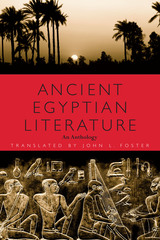
Poetry, stories, hymns, prayers, and wisdom texts found exquisite written expression in ancient Egypt while their literary counterparts were still being recited around hearth fires in ancient Greece and Israel. Yet, because of its very antiquity and the centuries during which the language was forgotten, ancient Egyptian literature is a newly discovered country for modern readers.
This anthology offers an extensive sampling of all the major genres of ancient Egyptian literature. It includes all the texts from John Foster's previous book Echoes of Egyptian Voices, along with selections from his Love Songs of the New Kingdom and Hymns, Prayers, and Songs: An Anthology of Ancient Egyptian Lyric Poetry, as well as previously unpublished translations of four longer and two short poems. Foster's translations capture the poetical beauty of the Egyptian language and the spirit that impelled each piece's composition, making these ancient masterworks sing for modern readers. An introduction to ancient Egyptian literature and its translation, as well as brief information about the authorship and date of each selection, completes the volume.
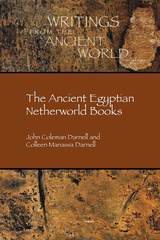
The first, complete English translation of the ancient Egyptian Netherworld Books
The ancient Egyptian Netherworld Books, important compositions that decorated the New Kingdom royal tombs in the Valley of the Kings, present humanity's oldest surviving attempts to provide a scientific map of the unseen realms beyond the visible cosmos and contain imagery and annotations that represent ancient Egyptian speculation (essentially philosophical and theological) about the events of the solar journey through the twelve hours of the night. The Netherworld Books describe one of the central mysteries of Egyptian religious belief—the union of the solar god Re with the underworldly god Osiris—and provide information on aspects of Egyptian theology and cosmography not present in the now more widely read Book of the Dead. Numerous illustrations provide overview images and individual scenes from each Netherworld Book, emphasizing the unity of text and image within the compositions. The major texts translated include the Book of Adoring Re in the West (the Litany of Re), the Book of the Hidden Chamber (Amduat), the Book of Gates, the Book of Caverns, the Books of the Creation of the Solar Disk, and the Books of the Solar-Osirian Unity.
Features:
- Accessible presentations of the main concepts of the Netherworld Books and the chief features of each text
- Notes and commentary address major theological themes within the texts as well as lexicographic and/or grammatical issues
- An overview of later uses of these compositions during the first millennium BCE
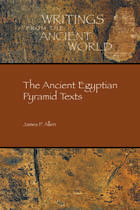
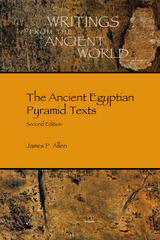
Completely revised and updated
James P. Allen provides a translation of the oldest corpus of ancient Egyptian religious texts from the six royal pyramids of the Fifth and Sixth Dynasties (ca. 2350–2150 BCE). Allen’s revisions take into account recent advances in the understanding of Egyptian grammar.
Features:
- Sequential translations based on all available sources, including texts newly discovered in the last decade
- Texts numbered according to the most widely used numbering system with new numbers from the latest 2013 concordance
- Translations reflect the primarily atemporal verbal system of Old Egyptian, which conveys the timeless quality that the text’s authors understood the texts to have

The book includes the first English-language anthology of Visky’s best known plays—Juliet, I Killed My Mother, and Porn—as well as critical analysis and an exploration of Visky’s “Barrack Dramaturgy,” a dramaturgical theory in which he considers the theater as a space for exploring feelings of cultural and personal captivity. Inspired by personal experience of the oppressive communist regime in Romania, Visky’s work explores the themes of gender, justice, and trauma, encouraging shared moments of remembrance and collective memory. This collection makes use of scripts and director’s notes, as well as interviews with creative teams behind the productions, to reveal a holistic, insider’s view of Visky’s artistic vision. Scholars and practitioners alike will benefit from this rare, English-language collection of Visky’s work and dramaturgy.
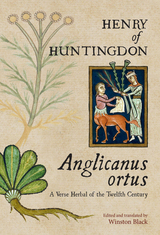


Focusing on the middle generation, with major figures such as Olga Sedakova, Svetlana Kekova, Vera Pavlova, and Tatyana Shcherbina, the collection also includes work by the youngest generation—born after 1970 and not yet known outside of Russia—as well as senior poets such as Bella Akhmadulina and Natalya Gorbanevskaya. Translators include such poets as Elaine Feinstein, Ruth Fainlight, Carol Rumens, and Daniel Weissbort as well as Russianists and scholars Peter France, Catriona Kelly, Robert Reid, and Stephanie Sandler.
A significant and extensive bibliography lists the major works of prominent Russian women poets. A preface by Stephanie Sandler, a concluding note by Dmitry Kuzmin on the online Vavilon project, a postface by Elena Fanailova, and biographical notes on the poets and translators complete the anthology, which is sure to be of great interest to students and scholars of Russian literature.

Ancient Athens’ most successful tragedian.
Sophocles (497/6–406 BC), with Aeschylus and Euripides, was one of the three great tragic poets of Athens, and is considered one of the world's greatest poets. The subjects of his plays were drawn from mythology and legend. Each play contains at least one heroic figure, a character whose strength, courage, or intelligence exceeds the human norm—but who also has more than ordinary pride and self-assurance. These qualities combine to lead to a tragic end.
Hugh Lloyd-Jones gives us, in two volumes, a new translation of the seven surviving plays. Volume I contains Oedipus Tyrannus (which tells the famous Oedipus story), Ajax (a heroic tragedy of wounded self-esteem), and Electra (the story of siblings who seek revenge on their mother and her lover for killing their father). Volume II contains Oedipus at Colonus (the climax of the fallen hero's life), Antigone (a conflict between public authority and an individual woman's conscience), The Women of Trachis (a fatal attempt by Heracles' wife to regain her husband's love), and Philoctetes (Odysseus' intrigue to bring an unwilling hero to the Trojan War).
Of his other plays, only fragments remain; but from these much can be learned about Sophocles' language and dramatic art. The major fragments—ranging in length from two lines to a very substantial portion of the satyr play The Searchers—are collected in Volume III of this edition. In prefatory notes Lloyd-Jones provides frameworks for the fragments of known plays.
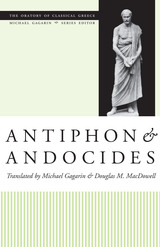
Classical oratory is an invaluable resource for the study of ancient Greek life and culture. The speeches offer evidence on Greek moral views, social and economic conditions, political and social ideology, and other aspects of Athenian culture that have been largely ignored: women and family life, slavery, and religion, to name just a few.
This volume contains the works of the two earliest surviving orators, Antiphon and Andocides. Antiphon (ca. 480-411) was a leading Athenian intellectual and creator of the profession of logography ("speech writing"), whose special interest was law and justice. His six surviving works all concern homicide cases. Andocides (ca. 440-390) was involved in two religious scandals—the mutilation of the Herms (busts of Hermes) and the revelation of the Eleusinian Mysteries—on the eve of the fateful Athenian expedition to Sicily in 415. His speeches are a defense against charges relating to those events.
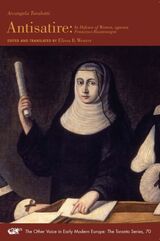
The Other Voice in Early Modern Women: The Toronto Series volume 70

Regarded by many as the finest poet of twentieth-century Spain, Antonio Machado y Ruiz (1875–1939) is not well known outside the Spanish-speaking world. This volume will introduce him to Anglo-American readers, enabling them to experience at first hand the subtle nuances of his verse. Some two hundred fifty poems in Spanish, drawn from Machado’s entire oeuvre, are accompanied on facing pages by sensitive and beautifully fluent translations which render the originals accessible to the mind and the ear.
Alan S. Trueblood annotates the individual poems, placing them in context and illuminating their allusions and undertones. In addition, he provides a substantial biographical and critical Introduction. This gives an overview of Machado’s life, as a poet and teacher and wide-ranging commentator on cultural, political, and social affairs. (Forced into exile at the end of the Civil War, he crossed the Pyrenees on foot and died a month later.) The Introduction also discusses the qualities of Machado’s predominantly quiet and reflective verse, as well as the development of the thought of this major poet.
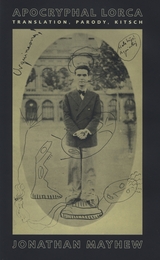
Federico García Lorca (1898–1936) had enormous impact on the generation of American poets who came of age during the cold war, from Robert Duncan and Allen Ginsberg to Robert Creeley and Jerome Rothenberg. In large numbers, these poets have not only translated his works, but written imitations, parodies, and pastiches—along with essays and critical reviews. Jonathan Mayhew’s Apocryphal Lorca is an exploration of the afterlife of this legendary Spanish writer in the poetic culture of the United States.
The book examines how Lorca in English translation has become a specifically American poet, adapted to American cultural and ideological desiderata—one that bears little resemblance to the original corpus, or even to Lorca’s Spanish legacy. As Mayhew assesses Lorca’s considerable influence on the American literary scene of the latter half of the twentieth century, he uncovers fundamental truths about contemporary poetry, the uses and abuses of translation, and Lorca himself.
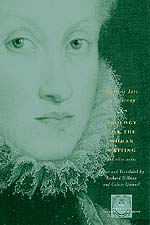
This volume presents translations of four of Gournay's works that address feminist issues. Two of these appear here in English for the first time—The Promenade of Monsieur de Montaigne and The Apology for the Woman Writing. One of the first modern psychological novels, the best-selling Promenade was also the first to explore female sexual feeling. With the autobiographical Apology, Gournay defended every aspect of her life, from her moral conduct to her household management. The book also includes Gournay's last revisions (1641) of her two best-known feminist treatises, The Equality of Men and Women and The Ladies' Complaint. The editors provide a general overview of Gournay's career, as well as individual introductions and extensive annotations for each work.

When does imitation of an author morph into masquerade? Although the Roman writer Ovid died in the first century CE, many new Latin poems were ascribed to him from the sixth until the fifteenth century. Like the Appendix Vergiliana, these verses reflect different understandings of an admired Classical poet and expand his legacy throughout the Middle Ages.
The works of the “medieval Ovid” mirror the dazzling variety of their original. The Appendix Ovidiana includes narrative poetry that recounts the adventures of both real and imaginary creatures, erotic poetry that wrestles with powerful desires and sexual violence, and religious poetry that—despite the historical Ovid’s paganism—envisions the birth, death, and resurrection of Christ.
This is the first comprehensive collection and English translation of these pseudonymous medieval Latin poems.
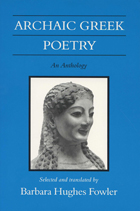
In addition to its breadth, Archaic Greek Poetry stands alone as the only volume of its kind translated by a contemporary published poet. Perhaps the most elegant translator of ancient Greek poetry into modern English, Barbara Hughes Fowler offers translations true to the original Greek while providing modern readers with superb examples of the beauty of lyric poetry. Students and scholars of classical and comparative literature, ancient history, and art history, as well as lovers of lyric poetry, will enthusiastically welcome this volume.

Architrenius, a satirical allegory in dactylic hexameters completed in 1184 by the Norman poet Johannes de Hauvilla, follows the journey of its eponymous protagonist, the “arch-weeper,” who stands in for an emerging class of educated professionals tempted by money and social standing. Architrenius’s quest for moral instruction leads through vivid tableaux of the vices of school, court, and church, from the House of Gluttony to the Palace of Ambition to the Mount of Presumption. Despite the allegorical nature of Architrenius, its focus is not primarily religious. Johannes de Hauvilla, who taught at an important cathedral school, probably Rouen, uses his stylistic virtuosity and the many resources of Latin poetry to condemn a secular world where wealth and preferment were all-consuming. His highly topical satire anticipates the comic visions of Jean de Meun, Boccaccio, and Chaucer.
This edition of Architrenius brings together the most authoritative Latin text with a new English translation of an important medieval poem.
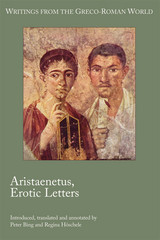
The first complete English translation of Aristaenetus in nearly three centuries
Through allusion and adaption of earlier authors, Aristaenetus recounts tales that are the stuff of comedy, erotic poetry, and ancient novel. Here we read of lovers who use every trope of erotic literature to praise their beloveds in over-the-top speeches. Aristaenetus amazes us with tales of paramours hatching complicated schemes to achieve their desires, while wily go-betweens help smooth their way. He presents us with accounts of unfaithful spouses who barely avoid capture in the midst of hair-raising and amusing infidelities. This sixth century collection is perfect for anyone interested in classical and postclassical literature.
Features:
- English translation and Greek text on facing pages
- Introduction with history of the text
- Discussion of intertextual connections with Greco-Roman authors

In the Soviet Union, as in the West, Marina Tsvetaeva (1892-4941) is acknowledged to be one of the great Russian poets of the century, along with Mandelstam, Pasternak and Akhmatova. Overnight sensation and oft-times pariah, Tsvetaeva was a poet of extraordinary intensity whose work continues to be discovered by new readers. Yet, while she is considered to be one of the major influences on modern Soviet poetry, few know of her consummate gifts as a writer of prose. These select essays, most of which have never been available in translation before, display the dazzlingly original prose style and the powerful, dialogic voice of a poet who would like to make art’s mystery accessible without diminishing it.
The essays provide incomparable insight on poetry, the poetic process, and what it means to be a poet. The volume offers, among many fascinating topics, a celebration of the poetry of Pasternak and reflections on the lives and works of other Russian poets, such as Mandelstam, Mayakovsky, and Zhukovsky. Included in this richly diverse collection are the essays “The Poet on the Critic,” which earned Tsvetaeva the enmity of many, Art in the Light of Conscience, a spirited defense of poetry, and The Poet and Time, seen by many scholars as providing the key to understanding Tsvetaeva’s work. The immense power and originality of Tsvetaeva’s language captured by Angela Livingstone’s superb translation of the essays along with twelve of Tsvetaeva’s poems on related themes, is testimony to why the Tsvetaevan revival in the Soviet Union and interest in the West continue to gain momentum as the centenary of her birth approaches. The volume is made complete by the addition of an elegant introduction by the translator, a chronology of Tsvetaeva’s life, and an index of contemporary poets and writers mentioned in the essays.
“Good poetry is always better than prose,” Tsvetaeva wrote. Prose as good as hers, however, is rare and few have done as much as she to explore the processes of creation and the feelings of the exceptionally creative person in the ordinary world.


Seductive verse.
Ovid (Publius Ovidius Naso, 43 BC–AD 17), born at Sulmo, studied rhetoric and law at Rome. Later he did considerable public service there, and otherwise devoted himself to poetry and to society. Famous at first, he offended the emperor Augustus by his Ars amatoria, and was banished because of this work and some other reason unknown to us, and dwelt in the cold and primitive town of Tomis on the Black Sea. He continued writing poetry, a kindly man, leading a temperate life. He died in exile.
Ovid’s main surviving works are the Metamorphoses, a source of inspiration to artists and poets including Chaucer and Shakespeare; the Fasti, a poetic treatment of the Roman year of which Ovid finished only half; the Amores, love poems; the Ars amatoria, not moral but clever and in parts beautiful; Heroides, fictitious love letters by legendary women to absent husbands; and the dismal works written in exile: the Tristia, appeals to persons including his wife and also the emperor; and similar Epistulae ex Ponto. Poetry came naturally to Ovid, who at his best is lively, graphic and lucid.
The Loeb Classical Library edition of Ovid is in six volumes.

This volume presents two complementary medieval anthologies containing lyrics by two outstanding Latin poets of the second half of the twelfth century. The poet Peter of Blois was proclaimed by a contemporary of his to be a master composer of rhythmic verse. Peter’s secular love-lyrics gathered in the Arundel manuscript give substance to that claim. Written with a technical virtuosity that rivals the metrical display of Horatian lyric, the poems give eloquent and learned expression to the cult of secular love that emerged in the twelfth century.
The collection is further augmented by verse as varied as Christmas poems and satires on the venality of the Roman Curia and immoral bishops, including a famous lament about church corruption by Walther of Châtillon.
The cleric Hugh Primas won recognition and fame for compositions in which he reflects upon his experiences, good and bad, while traveling around the cities of northern France (such as the important sees of Rheims and Sens) in search of patronage. Artistic in conception and execution, the poems are memorable for the witty and often acerbic tone with which Primas engages the holders of ecclesiastical power.

Poetry of the sky and stars.
Marcus Manilius, who lived in the reigns of Augustus and Tiberius, is the author of the earliest treatise on astrology we possess. His Astronomica, a Latin didactic poem in five books, begins with an account of celestial phenomena, and then proceeds to treat of the signs of the zodiac and the twelve temples; there follow instructions for calculating the horoscoping degree, and details of chronocrators, decans, injurious degrees, zodiacal geography, paranatellonta, and other technical matters. Besides exhibiting great virtuosity in rendering mathematical tables and diagrams in verse form, the poet writes with some passion about his Stoic beliefs and shows much wit and humor in his character sketches of persons born under particular stars. Perhaps taking a lead from Virgil in his Georgics, Manilius abandons the proportions of his last book to narrate the story of Perseus and Andromeda at considerable length.
In spite of its undoubted elegance, the Astronomica is a difficult work, and this edition provides in addition to the first English prose translation a full guide to the poem, with copious explanatory notes and illustrative figures.

Refined midnight oil.
Aulus Gellius (ca. AD 123–170) is known almost wholly from his Noctes Atticae, “Attic Nights,” so called because it was begun during the nights of an Attic winter. The work collects in twenty books (of Book VIII only the index is extant) interesting notes covering philosophy, history, biography, all sorts of antiquities, points of law, literary criticism, and lexicographic matters, explanations of old words, and questions of grammar. The work is valuable because of its many excerpts from other authors whose works are lost, and because of its evidence for people’s manners and occupations. At least some of the dramatic settings may be genuine occasions.
The Loeb Classical Library edition of Attic Nights is in three volumes.

Refined midnight oil.
Aulus Gellius (ca. AD 123–170) is known almost wholly from his Noctes Atticae, “Attic Nights,” so called because it was begun during the nights of an Attic winter. The work collects in twenty books (of Book VIII only the index is extant) interesting notes covering philosophy, history, biography, all sorts of antiquities, points of law, literary criticism, and lexicographic matters, explanations of old words, and questions of grammar. The work is valuable because of its many excerpts from other authors whose works are lost, and because of its evidence for people’s manners and occupations. At least some of the dramatic settings may be genuine occasions.
The Loeb Classical Library edition of Attic Nights is in three volumes.

Refined midnight oil.
Aulus Gellius (ca. AD 123–170) is known almost wholly from his Noctes Atticae, “Attic Nights,” so called because it was begun during the nights of an Attic winter. The work collects in twenty books (of Book VIII only the index is extant) interesting notes covering philosophy, history, biography, all sorts of antiquities, points of law, literary criticism, and lexicographic matters, explanations of old words, and questions of grammar. The work is valuable because of its many excerpts from other authors whose works are lost, and because of its evidence for people’s manners and occupations. At least some of the dramatic settings may be genuine occasions.
The Loeb Classical Library edition of Attic Nights is in three volumes.

Pagans’ advocate.
A professing pagan in an aggressively Christian empire, a friend of the emperor Julian and acquaintance of St. Basil, a potent spokesman for private and political causes—Libanius can tell us much about the tumultuous world of the fourth century.
Born in Antioch to a wealthy family steeped in the culture and religious traditions of Hellenism, Libanius rose to fame as a teacher of the classics in a period of rapid social change. In his lifetime Libanius was an acknowledged master of the art of letter writing. Today his letters—about 1550 of which survive—offer an enthralling self-portrait of this combative pagan publicist and a vivid picture of the culture and political intrigues of the eastern empire. A. F. Norman selects one eighth of the extant letters, which come from two periods in Libanius’ life, AD 355–365 and 388–393, letters written to Julian, churchmen, civil officials, scholars, and his many influential friends. The Letters are complemented, in this two-volume edition, by Libanius’ Autobiography (Oration 1), a revealing narrative that begins as a scholar’s account and ends as an old man’s private journal.
Also available in the Loeb Classical Library is a two-volume edition of Libanius’ Orations.

Pagans’ advocate.
A professing pagan in an aggressively Christian empire, a friend of the emperor Julian and acquaintance of St. Basil, a potent spokesman for private and political causes—Libanius can tell us much about the tumultuous world of the fourth century.
Born in Antioch to a wealthy family steeped in the culture and religious traditions of Hellenism, Libanius rose to fame as a teacher of the classics in a period of rapid social change. In his lifetime Libanius was an acknowledged master of the art of letter writing. Today his letters—about 1550 of which survive—offer an enthralling self-portrait of this combative pagan publicist and a vivid picture of the culture and political intrigues of the eastern empire. A. F. Norman selects one eighth of the extant letters, which come from two periods in Libanius’ life, AD 355–365 and 388–393, letters written to Julian, churchmen, civil officials, scholars, and his many influential friends. The Letters are complemented, in this two-volume edition, by Libanius’ Autobiography (Oration 1), a revealing narrative that begins as a scholar’s account and ends as an old man’s private journal.
Also available in the Loeb Classical Library is a two-volume edition of Libanius’ Orations.
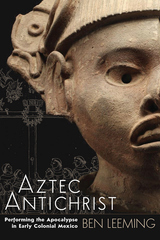
Discovered in the archives of the Hispanic Society of America in New York inside a notebook of miscellaneous Nahuatl-Christian texts written almost entirely by an Indigenous writer named Fabían de Aquino, the plays are filled with references to human sacrifice, bloodletting, ritual divination, and other religious practices declared “idolatrous” at a time when ecclesiastical authorities actively sought to suppress writing about Indigenous religion. These are Indigenous plays for an Indigenous audience that reveal how Nahuas made sense of Christianity and helped form its colonial image—the title figure is a powerful Indigenous being, an “Aztec Antichrist,” who violently opposes the evangelizing efforts of the church and seeks to draw converted Nahuas back to the religious practices of their ancestors. These practices include devotion to Nahua deities such as Tlaloc, Quetzalcoatl, and Tezcatlipoca who, in one of the most striking moves made by Aquino, are cast as characters in the plays.
Along with the translations, Leeming provides context and analysis highlighting these rare and fascinating examples of early Indigenous American literature that offer a window into the complexity of Nahua interactions with Christianity in the early colonial period. The work is extremely valuable to all students and scholars of Latin American religion, colonialism, Indigenous history, and early modern history and theater.

This selection of poems by internationally renowned Peruvian poet Carlos Germán Belli tempers a dark, ironic vision of worldly injustice with the “red midnight sun” of hope. Belli’s contemplative verses express faith in language, in bodily joy, and in artistic form. These thirty-five poems explore public and domestic spaces of confinement and freedom, from paralysis to the ease of a bird in its “azure cloister.”
Translations by Karl Maurer retain Belli’s original meter, follow his complex syntax, and meet the challenges of his poetic language, which ranges from colloquial Peruvian slang to the ironic use of seventeenth-century Spanish. This bilingual edition also includes notes and reflections on Belli and on the art of translation. Beyond introducing American readers to a major presence in world poetry, The Azure Cloister offers a fresh approach to the translation of contemporary verse in Spanish.
READERS
Browse our collection.
PUBLISHERS
See BiblioVault's publisher services.
STUDENT SERVICES
Files for college accessibility offices.
UChicago Accessibility Resources
home | accessibility | search | about | contact us
BiblioVault ® 2001 - 2024
The University of Chicago Press




